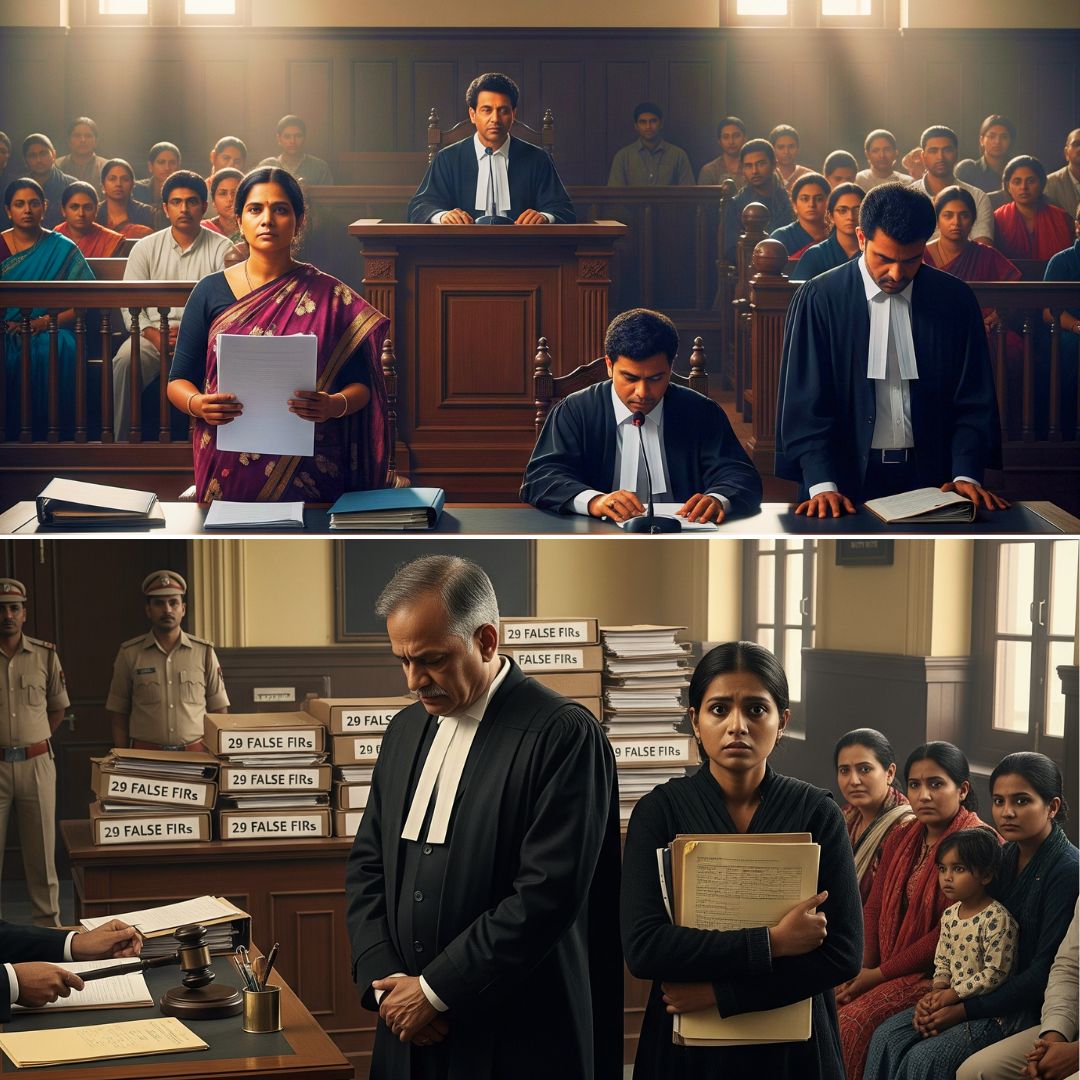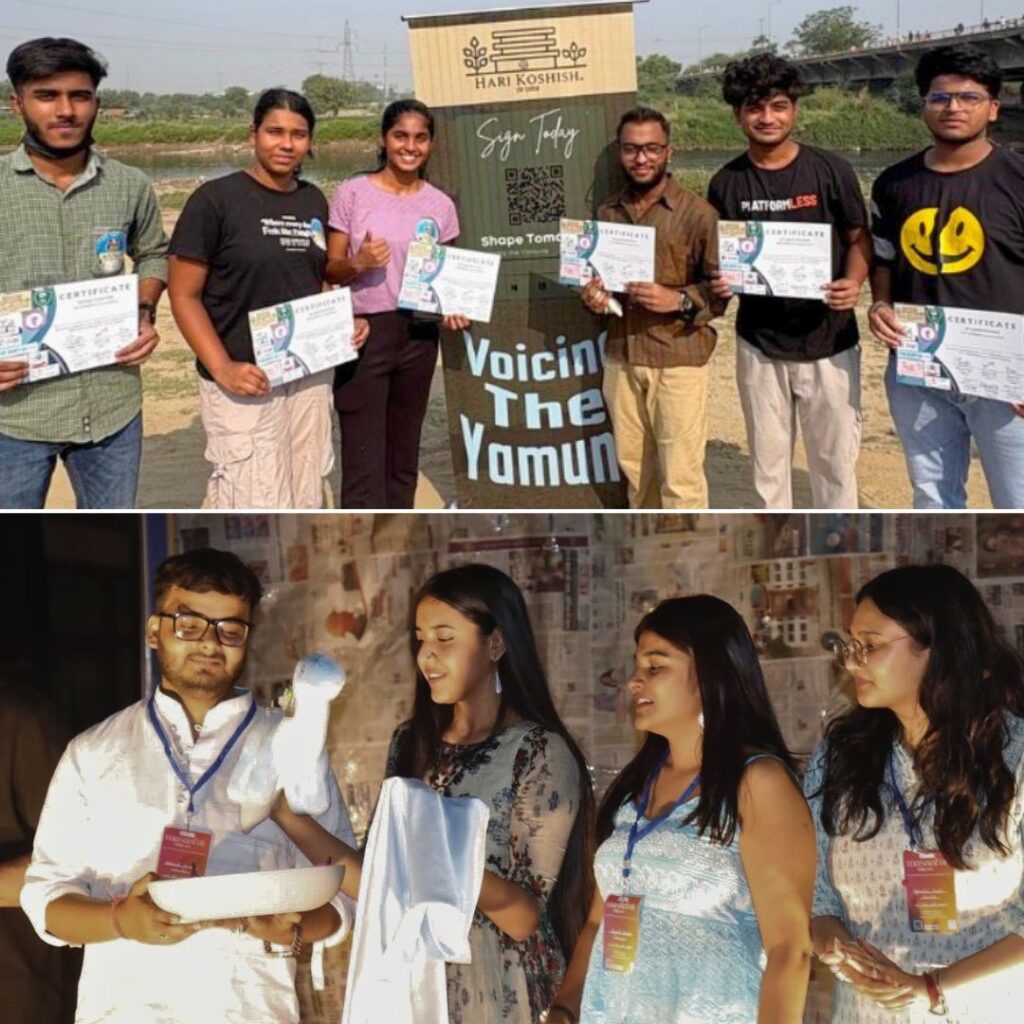On August 19, a Lucknow special court handed down life imprisonment to lawyer Parmanand Gupta for orchestrating a series of fraudulent rape and molestation cases under the Scheduled Castes and Scheduled Tribes (Prevention of Atrocities) Act.
Using Dalit woman Pooja Rawat as a front, Gupta masterminded nearly 30 false FIRs and legal cases, most of which targeted family rivals amid property disputes.
The verdict, delivered by Judge Vivekanand Sharan Tripathi, also imposed a ₹5.1 lakh fine on Gupta and barred him from practicing law in Uttar Pradesh. The co-accused, Pooja Rawat, was acquitted after cooperating with investigators and describing the coercion she endured.
“A Calculated Criminal Enterprise” Exposed
The trial revealed an astonishing picture of conspiracy and exploitation. Gupta, described in court as the “architect of a calculated criminal enterprise,” manipulated Rawat employed in his wife’s beauty parlour into filing FIRs over fabricated sexual assault incidents, often aimed at the Yadav family, a long-term rival clan with whom he shared property disputes.
Special Judge Vivekanand Sharan Tripathi, in a strongly worded judgment, said, “Such wrongdoers not only disgrace the profession of advocacy but erode faith in the rule of law.”
Rawat, who turned state witness on August 4, told the court she was threatened and forced into signing blank complaint forms, which Gupta later filled with false allegations. Evidence showed that in several cases, Rawat was definitively not present at the incident locations when the alleged attacks supposedly occurred.
The court underlined the magnitude of the suffering inflicted on the accused victims, many of whom faced reputational harm, social ostracism, and financial ruin before police and the judiciary recognised the pattern of fabrication. Senior police official Ajay Bhadauria said, “This verdict sends a clear message no one can hijack protective laws and ruin innocent lives for personal vendetta.”
Investigating a Pattern of Abuse
The exposure of Gupta’s fraudulent scheme marks a pivotal moment for the Indian justice system and for legislation protecting Scheduled Castes and Tribes.
It began when police and higher courts noticed a suspiciously consistent pattern in multiple FIRs similar allegations, the same complainant, and overlapping details across cases.
The Allahabad High Court, alarmed by the high number of acquittals and “striking resemblances” in case narratives, ordered a thorough CBI investigation in March 2025.
CBI sleuths confirmed that none of the evidentiary and medical reports supported the criminal charges, and further inquiry revealed that the real motive was to harass, extort, and intimidate Gupta’s personal rivals, including Arvind Yadav and his family.
The larger legal fraternity expressed shock. A spokesperson for the Bar Council of Uttar Pradesh, responding to the verdict, stated, “We support the strongest action possible when the nobility of our legal profession itself is threatened by such egregious criminality.”
In his ruling, Judge Tripathi called for legislative and procedural safeguards to prevent future abuses, while also stressing the vital importance of maintaining the integrity of special laws intended to empower the marginalised and voiceless.
The Logical Indian’s Perspective
The significance of this case cannot be overstated: it reminds us that the architecture of justice especially for India’s most vulnerable communities must be robust, transparent, and rooted in a culture of ethical lawyering. Parmanand Gupta’s conviction is a victory for accountability, but it also highlights the fragility of faith in our legal mechanisms when they are subverted for malice or self-interest.
The Logical Indian stands firm: solidarity with the exploited cannot come at the expense of fairness, due process, and public trust. We urge lawmakers, the judiciary, and civic society to work together streamlining redressal, promoting legal awareness, and enforcing strict oversight against misuse, without weakening vital protections for Dalits and tribals. Empathy, dialogue, and constant vigilance are our best safeguards. What actionable steps would you suggest to ensure protective laws are both effective and immune to manipulation?











